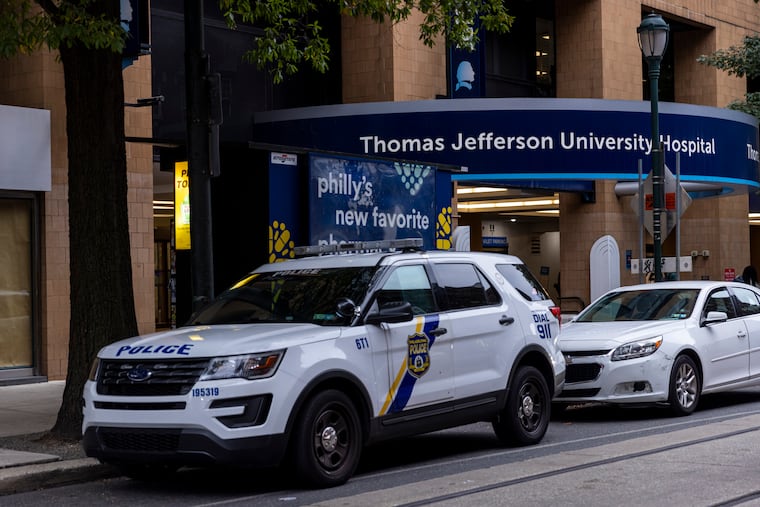The Jefferson Hospital shooter was sentenced to 35 years in prison after pleading guilty to murder
Stacey Hayes, 55, said little as he admitted shooting 43-year-old Anrae James during an ambush-style attack on the hospital floor last October.

The nursing assistant who fatally shot a coworker at Thomas Jefferson University Hospital last fall, then started a shootout with police in West Philadelphia after fleeing the hospital in body armor, was sentenced to at least 35 years in prison Wednesday after pleading guilty to charges including third-degree murder.
Stacey Hayes, 55, said little as he admitted shooting 43-year-old Anrae James during an ambush-style attack on the hospital floor last October — declining to specify a motive for the crime, or say why he then drove several miles in a U-Haul before firing rounds from an AR-15 style rifle into the air and later toward police.
Instead, during brief remarks before Common Pleas Court Judge Lillian Ransom, Hayes simply apologized to James’ relatives and friends. Dozens of them had packed the courtroom and wept during the proceedings, and several — including James’ mother and brother — told the judge how difficult James’ death has been for his loved ones, including his three children.
James’ mother, Janet, caller her son “an honorable, beautiful man,” and his brother, Armond, called him “my hero.”
One of the officers Hayes wounded during the West Philadelphia shootout, Arcenio Perez, said he may never regain full use of his right forearm — something that has already required several surgeries and changed how he can interact with his children.
“There will not be a moment that I will not be free of the damage you’ve caused,” Perez said.
And Assistant District Attorney David Osborne choked up while reading aloud a letter from James’ wife, who did not attend because she remains distraught over the death of her husband.
“I am still in disbelief,” the letter said, describing times when the couple’s children — including a 2-year-old daughter — have broken down asking for their father.
Before he was sentenced, Hayes said: “I won’t ask for forgiveness from y’all because I don’t deserve it. But I am truly, truly, truly sorry for my actions.”
His lawyer, Gary Server, said Hayes “accepts responsibility, he acknowledges his guilt,” and said the 35-year-prison term was “effectively a life sentence,” because it will bar Hayes from seeking parole until he’s nearly 90 years old.
Hayes fatally shot James, also a nursing assistant, on the eighth floor of the hospital where they worked just after midnight on Oct. 4 last year. James was on-duty, sitting at a computer in the hallway, when Hayes — who was not working at the time — got out of an elevator, walked toward James, and opened fire with a handgun.
As James lay wounded on the floor — and a colleague responded, trying to keep him alive — Hayes left the hospital and drove off in the U-Haul. An hour later, around 1:25 a.m., a passerby flagged down officers in Parkside, near the School of the Future, saying a man in scrubs nearby had a gun and was possibly firing shots in the air.
Four officers approached Hayes and told him to drop his gun, police said, but instead he opened fire on them, shooting nearly 70 rounds. The officers shot back, police said, and struck Hayes, who was wearing body armor, before taking him into custody.
Two officers, including Perez, were wounded in the gunfire, police said.
James, meanwhile, was declared dead from his injuries at the hospital.
Hayes was hospitalized, then charged with murder, attempted murder of a law enforcement officer, and related crimes. He was briefly deemed incompetent to stand trial due to questions about his mental health. Those issues were resolved before his plea.
The crime attracted national attention and shook employees at one of the city’s busiest hospitals. Jefferson officials later admitted they waited too long to notify employees of an active shooter in the building, and blamed “process deficiencies and human error” for the delay in communications.
Some of James’ coworkers sat in the courtroom Wednesday in blue scrubs. One of them, Mark Campiglia, who rushed to James’ aid after he’d been shot, testified during the hearing, saying James “is so dearly missed.”
“It’s like missing a family member,” Campiglia said. “We will probably never be the same.”